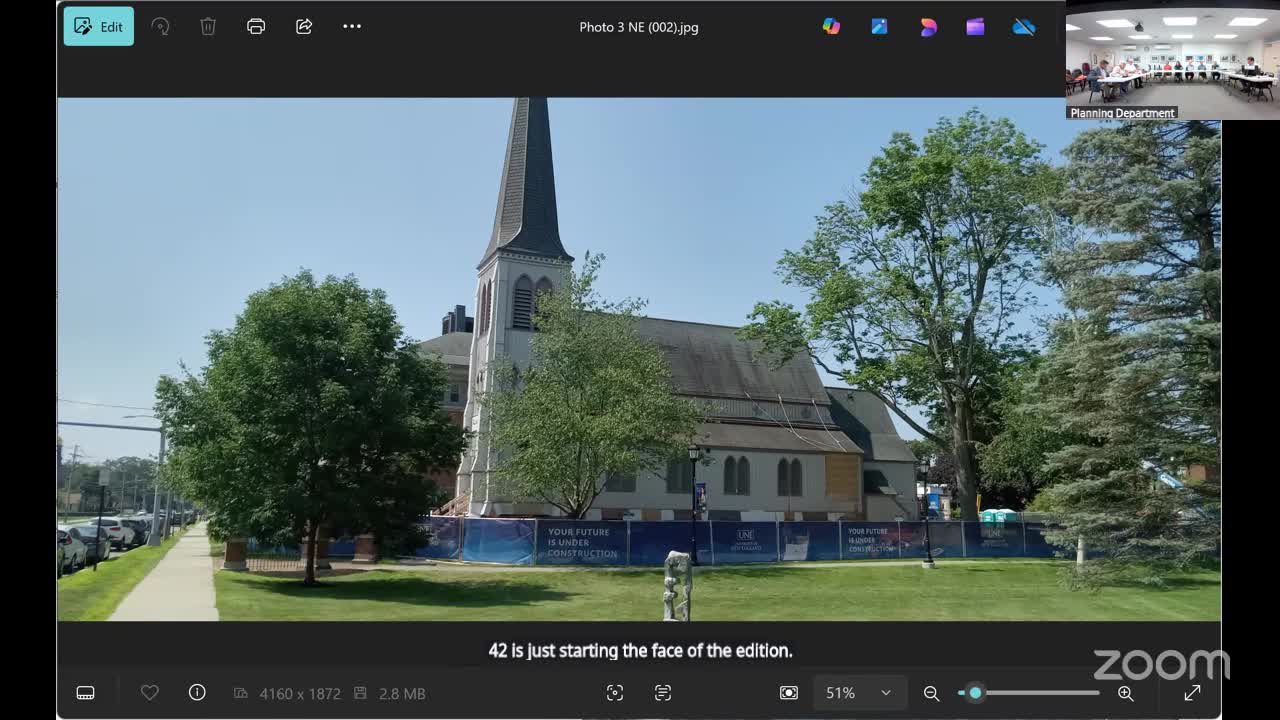Portland Adopts New ADA Guidelines Impacting Building Accessibility Standards
July 16, 2025 | Portland, Cumberland County, Maine
This article was created by AI summarizing key points discussed. AI makes mistakes, so for full details and context, please refer to the video of the full meeting. Please report any errors so we can fix them. Report an error »

The Hybrid Historic Preservation Board Meeting held on July 16, 2025, in Portland, Maine, focused on significant updates regarding architectural standards and accessibility requirements for historic buildings. The discussions highlighted the city's recent changes to the Americans with Disabilities Act (ADA) compliance, which now mandates a minimum clearance of 67 inches in certain public spaces, an increase from the previous requirement of 60 inches. This adjustment reflects Portland's commitment to enhancing accessibility in its historic structures.
One of the key topics was the design considerations for a new addition to an existing historic building. Board members engaged in a detailed analysis of the proposed materials and architectural elements, emphasizing the importance of maintaining a visual harmony with the original structure. Concerns were raised about the use of a zinc metallic color for the exterior of the addition, which some members felt contrasted sharply with the traditional materials of the main building. The discussion underscored the balance between modern design elements and the preservation of historical aesthetics.
The meeting also addressed the potential for exemptions in certain cases, particularly when rehabilitating interior spaces. However, it was clarified that new additions must adhere strictly to the updated codes, ensuring that any modifications respect the historical integrity of the site.
In conclusion, the meeting underscored Portland's ongoing efforts to blend modern accessibility standards with the preservation of its historical architecture. As the city continues to evolve, these discussions will play a crucial role in shaping how historic sites are adapted for contemporary use while honoring their past. The board's next steps will involve further deliberations on the proposed designs and their compliance with the new regulations, ensuring that Portland remains a city that values both its history and its future.
One of the key topics was the design considerations for a new addition to an existing historic building. Board members engaged in a detailed analysis of the proposed materials and architectural elements, emphasizing the importance of maintaining a visual harmony with the original structure. Concerns were raised about the use of a zinc metallic color for the exterior of the addition, which some members felt contrasted sharply with the traditional materials of the main building. The discussion underscored the balance between modern design elements and the preservation of historical aesthetics.
The meeting also addressed the potential for exemptions in certain cases, particularly when rehabilitating interior spaces. However, it was clarified that new additions must adhere strictly to the updated codes, ensuring that any modifications respect the historical integrity of the site.
In conclusion, the meeting underscored Portland's ongoing efforts to blend modern accessibility standards with the preservation of its historical architecture. As the city continues to evolve, these discussions will play a crucial role in shaping how historic sites are adapted for contemporary use while honoring their past. The board's next steps will involve further deliberations on the proposed designs and their compliance with the new regulations, ensuring that Portland remains a city that values both its history and its future.
View full meeting
This article is based on a recent meeting—watch the full video and explore the complete transcript for deeper insights into the discussion.
View full meeting
